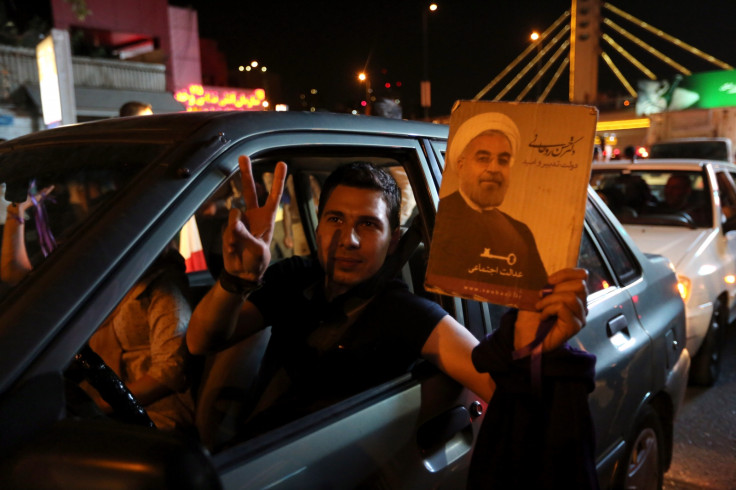Letter from Iran: In Tehran, the rich drive Jaguars and nobody is scared of McDonalds

Tehran, my city, is neither a mythical metropolis from 1,001 Nights nor a crippled capital mired by decades of economic sanctions. Tehran is a modern city with its fair share of nouveau rich flouting fancy clothes, driving Jaguars and shopping in malls full of the latest goods from China and the West.
That said, the menu of life in Tehran has also revolved around politics. Ever since the revolution of 1979, Tehran's souks, taxis and coffee shops have echoed with debates over current events, from the Iran-Iraq War of the 1980s, through our various disputes and reconciliation with our neighbours.
Iranians are famous for their sense of humour and like to interpret every incident – whether good or bad – as a pretext for making a joke
These days, the word on the street is of the nuclear deal with the US and Europe (P5 +1) and the impact that it will have on Iran. Most people in Tehran hope that by ending sanctions, the deal will finally bring Iran out of its isolation, but others are sceptical about the real impact of it on the lives of ordinary Iranians.
In the run up to the deal, there was a lot of emotional talk on both sides and when it was signed there was a great deal of excitement, and I think in the weeks since, people have come to their senses. They have realised that there is no pot of gold at the end of the rainbow. Life in Iran goes on and it is business as usual today.
On the streets of Tehran, I recently spoke to university students about what they thought of the deal. A 22-year-old student called Reza was positive as his field of expertise is nuclear physics. He hopes the deal will convince the world that Iran's nuclear ambitions are peaceful, although he is unsure on what the real effect will be on his day-to-day life.
Concerns haven't gone away
Others were more concerned about how the ending of sanctions will benefit their friends and families. "If the sanctions are removed, I will be able to transfer money to my sister who is studying in Austria, I can spend more money and my father, who is in the construction material business, will become more at ease and relaxed," said Diba, an architecture student.
But Mehdi, a social science student, told me that while he believes the deal was a good omen, Iran gave away too much in signing the deal: "I hope I am wrong but I think we lost the chess game. We gave too much and took too little. We gave up a diamond and took candy.
"We had got used to living with the sanctions and I don't think to see any tangible change in our lifestyle for the near future. I feel sorry that to keep our rights had to give a big fee to the West."
But life goes on. Iranians are famous for their sense of humour and like to interpret every incident – whether good or bad – as a pretext for making a joke. However, there is a serious side too. During the nuclear talks, it was said that Mohammad Javad Zarif, the Iranian foreign minister, told EU foreign minister Federica Mogherini: "Never threaten an Iranian," and there is a lot of truth in that.
There may be those in the West who, after the deal, believe Iran is ripe for the taking for Western companies. That the sanctions have meant Iran is not developed and Western firms can take advantage of that. My answer to them is not to be fooled – we have all the companies we need.
Even that global giant, fast-food chain McDonalds, cannot achieve success here. We have fast-food outlets hear by the dozen and they are booming. I spoke to the owner of one of them after the deal about whether he was concerned McDonalds would come to Iran and deprive him of business. He replied: "Never threaten an Iranian!"
© Copyright IBTimes 2024. All rights reserved.






